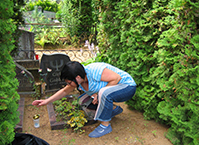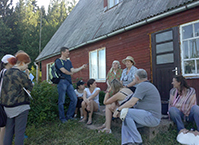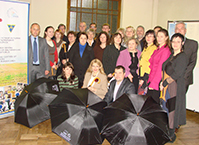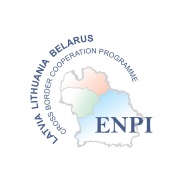Funeral. About Latvian and Russian daily life
Categories: Confessional and international relations, Antonina Ludborza
Story-teller: “You see, when a man died, he was buried in a week’s time, so it was. So, thus the funeral feast, everything was prepared quickly. The coffin had to be made on the first day, but the funeral itself proceeded as a usual funeral. Beer was made, and food was prepared. And the whole week women went to sing psalms to that funeral home. And, on the day of the funeral, the priest was brought there. That was so at Catholics’, and the same with Orthodox believers. We were eight Orthodox families here. But, as I said, since we live in the Latvian environment, I think that I don’t have any Russian accent.”
Interviewers: “No, no, no, no! Not at all!”
Story-teller: “Yes. When I attended school here in Nautrēni and … only my form master knew that I was of Russian nationality. But then, when they got to know … oh!, oh!, Antonija said: we didn’t known that you were Russian, your Latvian sounded so beautiful. Thus, so, so all our Christians were speaking. There were two women, rather old ones, they’ve passed away already, who had been brought here, I mean, here from Rogozi village of Makašāni civil parish, they were married into our village. They really spoke with such an accent, but, anyway they spoke, as they said, well the Latvian language, too.”
Interviewers: “Did Latvians get on well with Russians at that time?”
Story-teller: “I’m not sure. We got along rather well in our village, yes.”
Images
Audio
Researcher: Dr. philol. Gatis Ozoliņš, Daugavpils Universitāte












